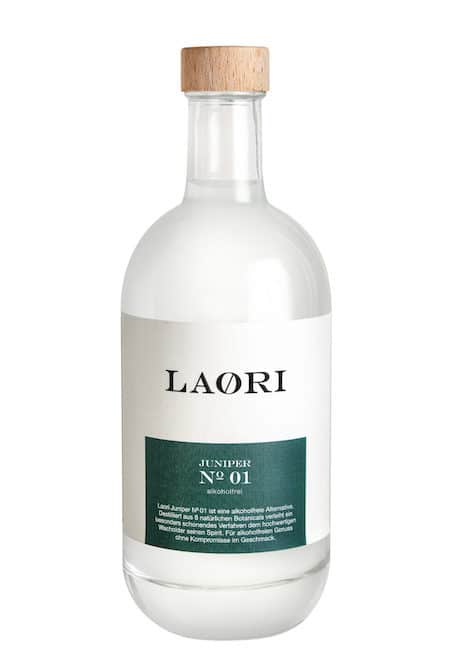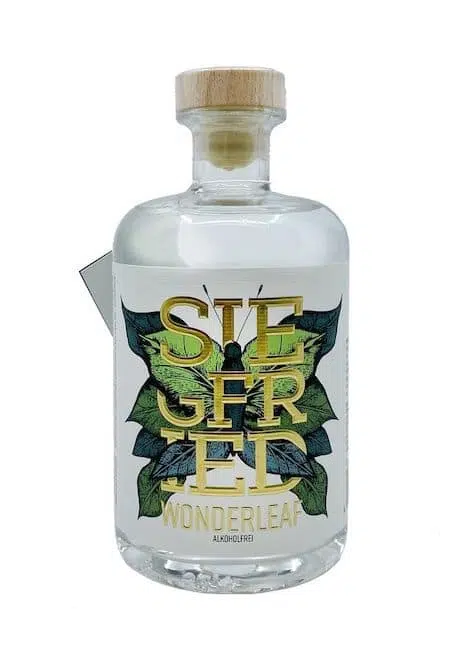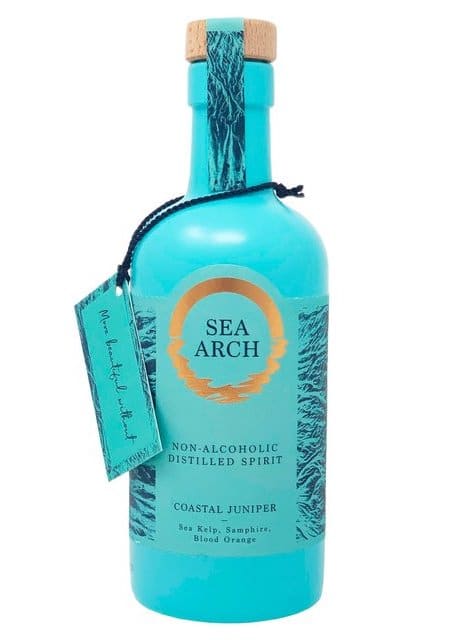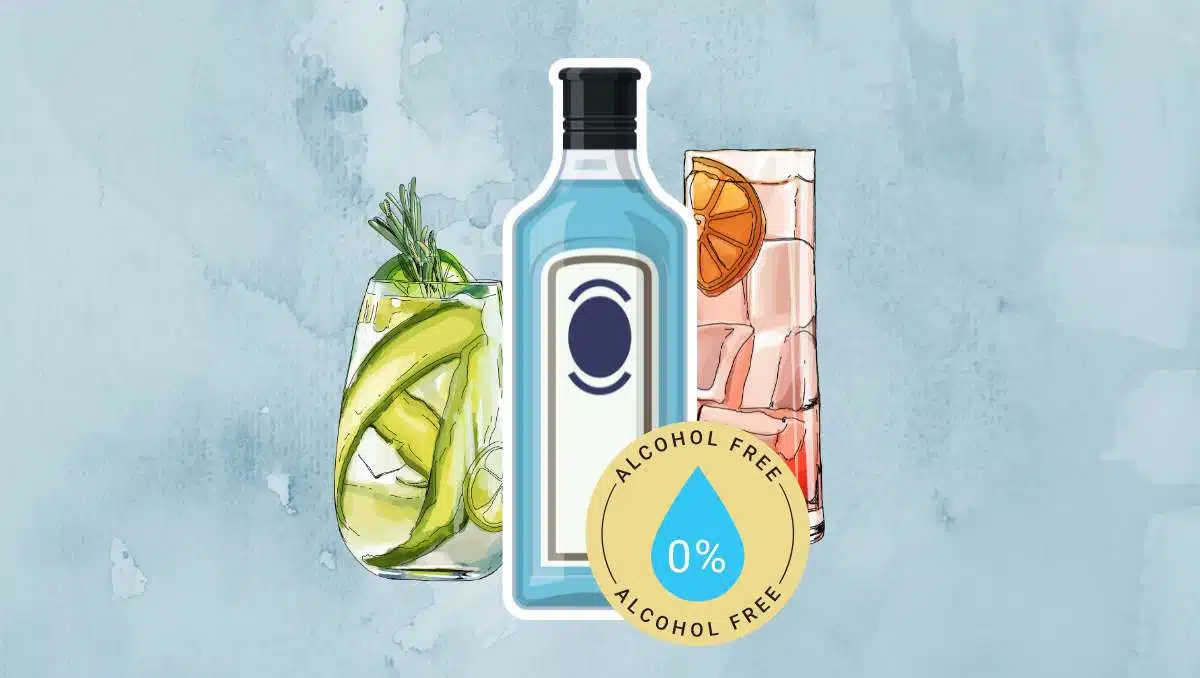Gin is one of the most-hyped spirits of the past decade. You can find thousands of different brands produced all over the globe. It almost seems as if every region has a local Gin. And a few years ago, a new category joined the mix: alcohol-free Gin.
While some happily embraced this new trend, others were -and still are- more skeptical. They wonder what the point of an alcohol-free spirit could be. Why not simply stick to a soft drink or water instead?
Those are all valid questions, and alcohol-free Gin, like other alcohol-free liquors, certainly isn't for everyone. But demand and the growing number of producers show there is a market for it, and it has a right to exist. So let's see what it is, which ones you should try, and if they are really free of alcohol.
What is non alcoholic Gin?
Per definition, Gin does contain alcohol. Thus, the alcohol-free version technically cannot be Gin. Instead, non alcoholic Gin is a beverage that imitates the characteristic of Gin - it tries to look, smell and taste as close to Gin as possible.
Standard Gin is a distilled alcoholic beverage with a grain base and a predominant flavor of juniper berries. Sometimes the grain base gets replaced by grapes, potatoes, or another base ingredient. However, juniper berries are always an indispensable ingredient. This is even directed by law, along with the minimum ABV of 40% (80 proof) in the US. The EU requires a minimum ABV of 37.5%.
The flavors of Gin can be herbal, spicy, fruity, or a mix of all the above. The possibilities are endless. Clearly, this great variety of flavors is a primary reason why Gin is such a popular spirit to imitate and turn into a non-alcoholic version.
Is non-alcoholic Gin really free of alcohol?
The short answer is, non alcoholic gin is not always completely alcohol-free. Some products may contain up to 0.5% of alcohol. That depends on the production process of a specific product.
Alcohol-free Gin that undergoes a rectification process will always contain a bit of alcohol. As long as the alcohol content is below above-mention 0.5%, producers can label them as non-alcoholic or alcohol-free.
Can a non-alcoholic gin give you a headache?
Non-alcoholic gin, like alcohol-free beer, is unlikely to cause headaches in the same way that alcoholic beverages can. Since non-alcoholic gin doesn't contain alcohol, it won't lead to the diuretic effect or the production of toxic byproducts associated with alcoholic drinks, which can trigger headaches.
However, it's essential to acknowledge that individual sensitivities to ingredients can vary. Some people might experience mild discomfort or headaches after consuming certain beverages, including non-alcoholic gin, due to factors like additives or specific compounds present in the drink.
Therefore, while non-alcoholic gin is generally less likely to cause headaches due to alcohol content, other ingredients or sensitivities could still play a role in individual reactions.
Is non alcoholic gin safe when pregnant?
It's recommended that pregnant women abstain from consuming non-alcoholic gin or any other beverages labeled as alcohol-free. These beverages might contain higher ethanol levels than indicated on their labels.
Since there is no known safe level of alcohol intake during pregnancy, avoiding non-alcoholic beverages entirely would eliminate any potential risk of fetal alcohol spectrum disorder.
While moderate consumption of non-alcoholic beverages is unlikely to cause harm to breastfed infants, it's advised to briefly delay breastfeeding after consuming such drinks to ensure that the infant is not exposed to alcohol.
It's crucial to prioritize the health and safety of the pregnant woman and her baby by avoiding alcohol-containing products during pregnancy.
Does non-alcoholic Gin taste like Gin?
The taste and aroma of non alcoholic gin are similar to Gin but not the same. The palate is sweeter and more artificial with a thinner consistency compared to their alcoholic counterparts.
Like other spirit imitations, non-alcoholic Gin is not for neat drinking. But that's not a big issue here because even the most genuine Gin is not usually meant to be drunk pure.
Non-alcoholic Gin has a similar aroma to classic Gin, but despite all efforts, it lacks texture and the bite characteristic of any alcoholic beverage. Still, the substitute is pleasant in combination with tonic water in a Gin and Tonic garnished with cucumber, lime, or mint.
The alcohol-free spirit is also great in mocktail recipes. So, as long as you want to use it in mixed drinks and don't expect something that 100% matches the taste of true Gin, you can give this non-alcoholic alternative a try.
Different types of non-alcoholic Gin
There is more than one way to make alcohol-free Gin. One is to take a regular Gin and remove the alcohol. That is done by separating a distilled spirit into its components (rectification) and then reassembling them without alcohol.
This variant will always leave some alcohol residue within the end product. But, as long as the amount is below 0.5% ABV, a beverage can be labeled alcohol-free.
Another option is to distill a Gin as usual but drastically increase the concentration of aromas from the herbs and spices. Later, you water the Gin down until it has next to no ABV.
The alternative and the most common option now is to distill water with botanicals and get a 100% zero-proof substitute for Gin. Below, I will explain how you can do this at home.
How is non-alcoholic Gin made?
Now, to make non-alcoholic Gin, manufacturers have to replace the base alcohol used for regular Gin. And this substitute is water.
Gin is relatively easy to produce, which also explains why there are so many Gins on the market. To mimic the taste of a spirit with such a simple production process is the obvious choice. So it's hardly surprising that the first alcohol-free spirit was Gin.
Like the alcoholic base of regular Gin, the water base is infused with botanicals and then distilled. Some distillers also add aromas to the distillate to intensify the flavors.
And that is more or less the whole magic behind non-alcoholic Gin. However, note that the botanicals and herbs are different in non-alcoholic Gin to balance the alcoholic bite and flavor. Of course, these recipes and ingredients are well-kept secrets.
Is alcohol-free Gin worth it?
The alcohol-free Gin substitutes are a good choice for highballs or mocktails. However, with prices similar to or above those of Gin, the booze-free alternatives are not really affordable.
Still, it is a convenient and effective way to offer a non-drinker a grown-up drinking option and make them feel part of the party.
Plus, alcohol-free Gin is low in calories. In fact, a lot lower than juice-based alcohol-free cocktails or their alcohol-containing counterparts.
So that helps with sticking to mocktails during Dry January, as well as with the unavoidable After-Christmas Weight Loss resolutions.
Can I make alcohol-free Gin at home?
Unlike alcohol-free Whiskey imitations, you can make your own version of alcohol-free Gin at home. For that, you need a hydrolat, also called hydrosol - a sort of solution with water as a solvent.
To produce this hydrolat, you need a big pot with a lid and a metal steamer, a small vessel to collect the hydrolat, a 20oz bottle, a funnel, and ice. And, of course, you need spices and botanicals.
The options here are endless. If you want to get a product similar to a well-balanced, classic Gin, you can go with a mix of (measurements per liter of water)
- 1oz juniper berries
- 6 green, opened cardamom pods
- 6 tsp mixed flowers (lavender, orange, thyme, etc.)
- 1 tsp coriander seeds
- a thin cinnamon stick
- 1 tsp grated lemon peel
- 1 tsp grated organic orange
- wedges of 1/2 fresh bergamot
Steps to make DIY alcohol-free gin:
- Fill the pot with 1l of water. Then add all your botanicals and give it a good stir. Put the steamer insert in place and position the bowl for collecting your hydrolat centered on top.
- Now cover the pot with the lid, but put it upside down. That way, it functions as a plate for the ice that has to go on top.
- Use medium heat to bring everything to a boil. You will soon see vapor rising from the flavored water that condenses on the cold lid and drips down into the bowl below. Voila, that's your alcohol-free Gin.
- Distill the water in the pot repeatedly until only about 0.5 inches of water remains. And every time the ice is fully melted, replace it with new ice. Fill your hydrolat in your bottle, close it tightly, and let it cool before tasting it mixed with tonic.
Best Nonalcoholic Gin Brands to Try
If making your own alcohol-free gin is too laborious, here are some brands to try. Seedlip was the first producer of non-alcoholic spirits, and their iconic and playful bottles featuring either a rabbit, a squirrel, or a fox flooded social media in 2014 and 2015.
Their products are still top sellers. But since then, many others have joined the game, so here are three more alcohol-free Gin alternatives worth a try. Most of them are gluten-free and also vegan, like Monday Gin or Tanqueray 0.0. Let's have a look at our recommendations:
1 - Laori

Laori is a non-alcoholic Gin alternative from the heart of Berlin. They developed a new method to distill alcohol-free Gin that follows the example of French perfume distillation.
It helps to imitate the fragrance of Gin and adds to the experience. Laori Juniper No 1 carries the aromas of bright citrus, warm spices, and herbs brought to the drink by the seven natural ingredients: juniper, cardamom, coriander, angelica root, bergamot, rosemary, and lavender.
2 - Siegfried Wonderleaf

This Gin was born out of a joke posted on social media. Siegfried Gin posted a non-alcoholic version of their popular spirit on Instagram on Fools Day 2016. Apart from the expected laugh, they got a lot of positive feedback, which left them wondering if it was an actual option. And in 2017, Siegfried Wonderleaf was launched.
The alternative is an excellent expression of gluten-free and alcohol-free gin with natural flavors gin that is a great alternative to traditional London Dry Gin.
3 - Sea Arch

Sea Arch zero-alcohol Gin is from the stunning Devon coastline in South England. They use traditional distillation techniques and remove the alcohol in an additional step. So keep in mind that it might not be 100% zero-proof, although pretty close.
The flavor profile of Sea Arch is refreshing and crisp with a kick of bitter citrus and subtle sweetness coming from botanicals like sugar kelp, samphire, juniper, blood orange, cardamon coriander, grapefruit, lemon, and sage. Sea Arch packaging is entirely plastic-free.
Drinks to make with alcohol-free Gin
The list of classic gin cocktails is extensive: G&Ts, Gimlet, and the Dry Martini are just some of the best-known drinks you can make with standard Gin. To make the best use of the no-alcohol Gin, try to make the following mocktails for guilt-free delights.
- Nogroni: The ingredients of this twist on the classic Negroni include a no-alcohol gin, Lyre's Italian Orange, and Versin. Garnished with an orange peel the flavours are not exactly the same as in a real Negroni but are complex and bittersweet with hints of fresh citrus.
- Elderflower Gin and Tonic: Combine the alcohol-free base with quality tonic water and 0.5 ounces of elderflower simple syrup for a non-alcoholic, bitter, and sweet summer drink.
- No alcohol Martini: Pair alcohol-free with an ersatz dry vermouth like the one from Lyre’s or Martini & Rossi.

